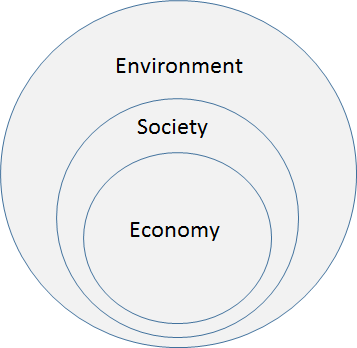2024-25 Catalog ARCHIVED CATALOG: Content may no longer be accurate.
Sustainability Practices for Research Center (SPARC)
|
|
 Return to: Engaged Learning, Honors, and Interdisciplinary Programs Return to: Engaged Learning, Honors, and Interdisciplinary Programs
Director: Dr. Alice Mulder
Telephone Contact: Bonnie Christiansen(801) 626-6326
Location: Stewart Library 147
Website: https://weber.edu/sustainability/sustainability-practices-research-center.html
Mission Statement
The mission of the Weber State University Sustainability Practices and Research Center is to inform and educate WSU students, faculty, staff and the local and statewide community in order to ensure the sustainability of our region and our world for future generations. The Center serves as a hub to connect campus activities, programs, departments and community partners in order to advance a commitment to sustainability on campus and in the region. It facilitates curricular and co-curricular learning experiences related to sustainability toward the goals of both understanding and working to address the sustainability challenges of our time.
Sustainability at WSU
Weber State is committed to sustainability education and to sustainability in its own operations and practices on its campuses. We are all global and local citizens, intricately interconnected to both natural and human systems.
“Sustainability” is considered at Weber State in an inclusive, holistic sense, recognizing that that environmental, social, and economic health are interdependent and interconnected in both simple and complex ways. Below is WSU’s general curriculum-focused definition of sustainability (approved by the Environmental Initiatives Committee (EIC) in 2010):
 At Weber State University the goal of sustainability education is for students to gain knowledge and understanding of the intricate linkages between human and natural systems. This includes a recognition that healthy human societies (physically, socially, culturally, politically, and economically) are fundamentally dependent on healthy ecosystems and the sustainable use of natural resources, such that they are available indefinitely for future generations to meet their needs. Included in this goal is for students to learn how to achieve sustainability across these areas. At Weber State University the goal of sustainability education is for students to gain knowledge and understanding of the intricate linkages between human and natural systems. This includes a recognition that healthy human societies (physically, socially, culturally, politically, and economically) are fundamentally dependent on healthy ecosystems and the sustainable use of natural resources, such that they are available indefinitely for future generations to meet their needs. Included in this goal is for students to learn how to achieve sustainability across these areas.
Learning about the concepts, challenges and potential solutions for sustainability can occur in classes and departments across the university. Many disciplines consider and address issues pertinent to sustainability such as anthropology, automotive technology, botany, construction management, earth science, economics, electrical engineering technology, English, geography, graphic arts, history, interior design, nursing, nutrition, philosophy, political science, physics, sociology, zoology, and many others.
Sustainability Course Designation
The SUS designation on courses stands for “sustainability” and indicates that a course involves some sustainability components, which aim to both further students’ understanding of and ability to address real world sustainability challenges. As noted above, sustainability is defined in a pluralistic and inclusive way, encompassing human and ecological health, social justice, secure livelihoods, and a better world for all generations. Learning about sustainability in an array of courses across the curriculum will increase students’ awareness and comprehension that healthy human societies are fostered and supported through a complex web of interconnections between their physical, social and economic dimensions.
To see a list of courses that either focus on or include some component related to sustainability (e.g., a case study, module, readings) please visit https://www.weber.edu/sustainability/courses.
 Return to: Engaged Learning, Honors, and Interdisciplinary Programs Return to: Engaged Learning, Honors, and Interdisciplinary Programs
|